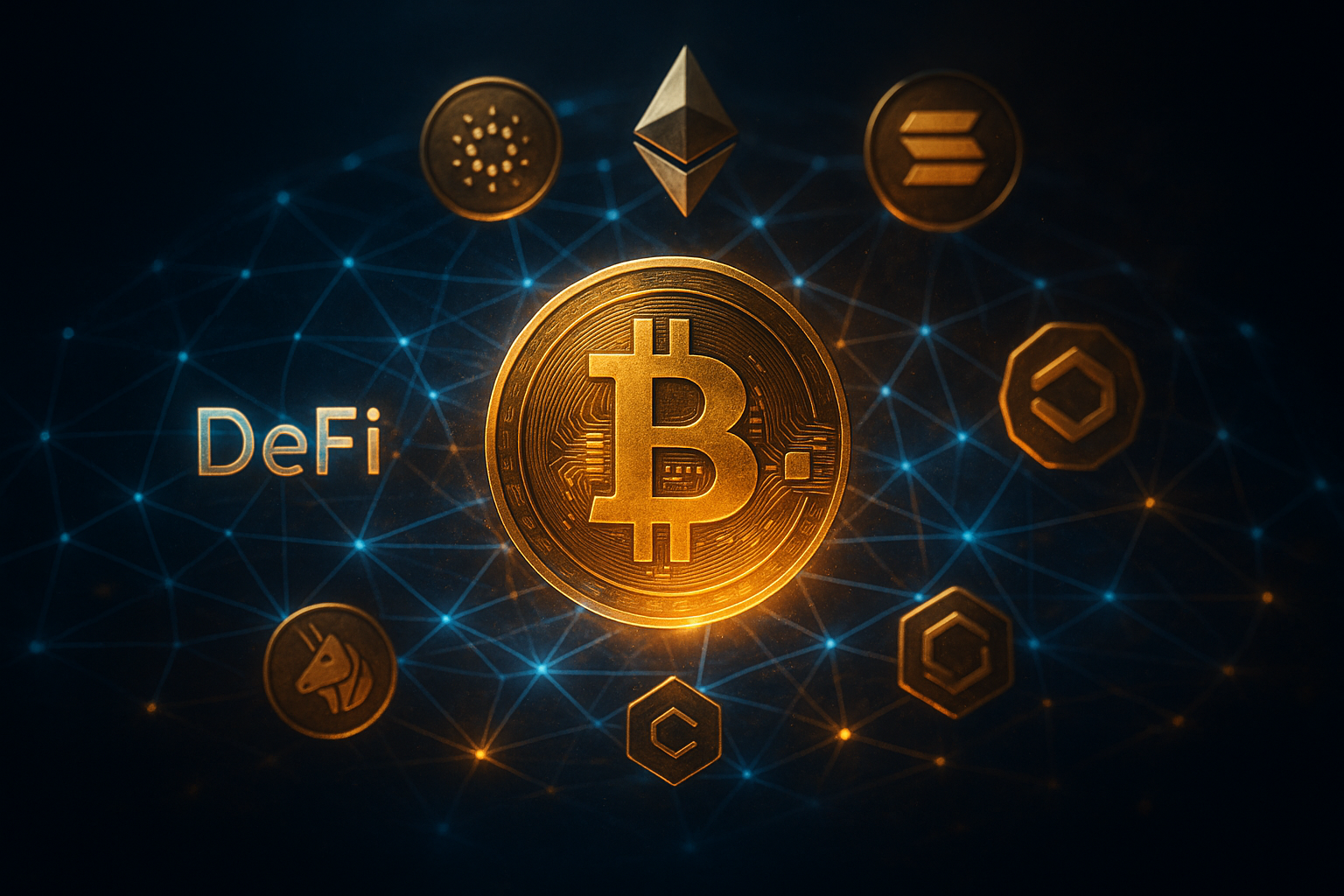What Are DeFi, Tokens, and Altcoins?
Beyond Bitcoin: understanding the wider crypto ecosystem.
What Are Altcoins?
Altcoin = any cryptocurrency that is not Bitcoin.
Examples: Ethereum (ETH), Solana (SOL), Ripple (XRP), Cardano (ADA), Polygon (MATIC).
They often aim to improve on Bitcoin’s design or serve different use cases (smart contracts, faster payments, privacy, etc.).
What Are Tokens?
Tokens are digital assets built on existing blockchains (not their own blockchain).
Example: ERC-20 tokens built on Ethereum (like UNI, AAVE, LINK).
Tokens can represent:
Utility (used within a project, like paying fees).
Governance (voting rights in protocols).
Assets (like stablecoins or tokenized real-world items).
What Is DeFi?
DeFi (Decentralized Finance) is crypto’s version of financial services, without banks. It uses smart contracts on blockchains like Ethereum to enable:
Lending & Borrowing (Aave, Compound)
Decentralized Exchanges (DEXs) (Uniswap, SushiSwap)
Yield Farming / Staking
Stablecoins for payments
“DeFi is an open, programmable financial system.”
Why This Matters
Understanding the differences helps you:
See why Bitcoin is unique vs. other coins.
Spot new opportunities in altcoins and tokens.
Recognize the innovation DeFi brings (but also its risks).
Build a diversified, disciplined strategy—not just chasing hype.
Risks and Considerations
Volatility: Altcoins are often more volatile than BTC.
Smart Contract Risk: Bugs or exploits in DeFi code.
Regulation: Governments are still defining rules.
Scams: Meme coins and pump-and-dumps can wipe out investors.
Discipline first: never invest more than you can afford to lose, and focus on projects with proven track records.
FAQs
-
A: Coins have their own blockchain (e.g., ETH on Ethereum). Tokens run on another blockchain (e.g., UNI on Ethereum).
-
A: Yes. Anything not Bitcoin is considered an altcoin.
-
A: It opens financial access globally, without banks, though risks are still high.
-
A: No. Many fail. Focus on strong use cases and disciplined entries.
Want deeper insights into DeFi, tokens, and altcoins?
Inside the C3 Vault, you’ll find frameworks, cycle strategies, and risk management tools to help you navigate beyond Bitcoin.

